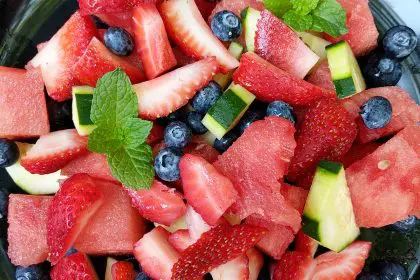In the ever-evolving landscape of nutrition science, the spotlight has recently shifted to an unlikely hero: the human gut. This complex ecosystem, home to trillions of microorganisms, plays a pivotal role in overall health, influencing everything from digestion to immune function and even mood. At the center of this microbial universe lies an often-overlooked ally: protein.
As researchers delve deeper into the intricate relationship between diet and gut health, protein has emerged as a key player in maintaining a robust and balanced digestive system. This essential macronutrient not only supports the growth and repair of gut cells but also fosters the proliferation of beneficial bacteria while keeping harmful microbes at bay.
For the health-conscious individual navigating the maze of dietary advice, incorporating protein-rich snacks into daily routines offers a delicious and effective way to nurture gut health. This comprehensive guide explores the science behind protein’s gut-boosting properties and presents an array of snack options designed to satisfy both palate and intestinal flora.
The protein-gut connection: A symbiotic relationship
The human gut, often referred to as the “second brain,” houses a diverse community of microorganisms collectively known as the gut microbiome. This internal ecosystem plays a crucial role in digestion, nutrient absorption, and immune function. The foods we consume serve as fuel not only for our bodies but also for these microscopic inhabitants.
Protein, one of the three macronutrients essential for human health, plays a multifaceted role in supporting gut health. It serves as a building block for the cells lining the intestinal wall, helps maintain the integrity of the gut barrier, and provides the raw materials needed for the production of digestive enzymes and immune cells.
Moreover, certain amino acids found in protein sources act as precursors for compounds that support the growth of beneficial bacteria. These “good” microbes, in turn, help break down food, produce essential vitamins, and crowd out potentially harmful bacteria.
Decoding your protein needs
While the importance of protein is clear, determining the right amount for individual needs can be a complex task. Factors such as age, gender, body composition, and activity level all play a role in shaping protein requirements.
The general guideline set by health authorities suggests a minimum intake of 0.8 grams of protein per kilogram of body weight. However, this baseline recommendation may fall short for those engaged in regular physical activity or looking to optimize their gut health.
For individuals seeking to enhance their gut microbiome, experts often recommend a slightly higher protein intake, ranging from 1.2 to 1.6 grams per kilogram of body weight. This increased intake provides ample resources for both body and gut maintenance while supporting the growth of beneficial bacteria.
17 protein-rich snacks to elevate your gut game
Incorporating protein-rich snacks into your daily routine doesn’t have to be a bland or boring affair. Here’s a curated list of 17 delicious and gut-friendly options to keep your microbiome thriving:
- Greek yogurt parfait: Layer low-fat Greek yogurt with fresh berries and a sprinkle of nuts for a probiotic-rich treat packing about 20 grams of protein per serving.
- Edamame: These young soybeans offer 9 grams of protein and 4 grams of fiber per half-cup serving. Steam and lightly salt for a satisfying snack.
- Mushroom and cheese melt: Combine sun-dried mushrooms with melted cheese for a savory snack containing 10 grams of protein and gut-supporting vitamin D.
- Protein-packed oatmeal: Mix half a cup of oats with milk and a scoop of protein powder for a hearty bowl containing 20 grams of protein and 5 grams of fiber.
- Almond butter on apple slices: Spread almond butter on apple slices for a crunchy snack offering 7 grams of protein and a dose of prebiotics.
- Homemade fish fingers: Prepare bite-sized pieces of fish fillet for a protein-rich snack delivering 24 grams of protein and omega-3 fatty acids.
- Hummus and vegetable platter: Pair homemade hummus with an assortment of colorful vegetables for a snack providing 10 grams of protein and 7 grams of fiber.
- Cottage cheese with berries: Combine low-fat cottage cheese with a handful of berries for a creamy treat containing 14 grams of protein and antioxidants.
- Chocolate chia seed pudding: Mix chia seeds with cacao powder and milk for a dessert-like snack offering 13 grams of protein and 10 grams of fiber.
- Lentil chips: Bake thinly sliced lentils for a crunchy alternative to potato chips, providing 9 grams of protein and 8 grams of fiber per serving.
- Turkey and avocado roll-ups: Wrap slices of turkey breast around avocado for a protein-packed snack with 15 grams of protein and healthy fats.
- Egg and vegetable muffins: Prepare mini frittatas in muffin tins for a portable snack containing 7 grams of protein each.
- No-bake protein bars: Combine oats, nut butter, and protein powder for a convenient snack offering 10 grams of protein per bar.
- Tofu nuggets: Marinate and bake tofu cubes for a plant-based snack providing 14 grams of protein per serving.
- Tuna and cucumber rolls: Wrap canned tuna in thin cucumber slices for a refreshing snack with 20 grams of protein.
- Protein-enriched banana ice cream: Blend frozen bananas with Greek yogurt and protein powder for a creamy treat containing 15 grams of protein.
- Kefir smoothie: Mix kefir with fruits and leafy greens for a probiotic-rich smoothie offering 10 grams of protein per cup.
Beyond protein: Crafting a gut-friendly snacking strategy
While protein plays a crucial role in supporting gut health, it’s important to remember that a truly gut-friendly diet encompasses a variety of nutrients. To maximize the benefits of your protein-rich snacks, consider these additional guidelines:
- Embrace fiber: Pair protein sources with fiber-rich foods to promote digestive health and feed beneficial bacteria.
- Incorporate fermented foods: Include probiotic-rich options like yogurt, kefir, and kimchi to introduce beneficial bacteria directly into your gut.
- Prioritize plant diversity: Aim to consume a wide variety of plant-based foods to support a diverse microbiome.
- Limit processed foods: Opt for whole, minimally processed ingredients to avoid additives that may disrupt gut balance.
- Stay hydrated: Adequate water intake supports overall digestive function and helps maintain a healthy gut environment.
The future of gut health: A personalized approach
As research in the field of gut health continues to advance, scientists are uncovering the intricate ways in which individual factors such as genetics, lifestyle, and existing microbiome composition influence dietary needs. This growing body of knowledge points toward a future where personalized nutrition plans, tailored to individual gut profiles, may become the norm.
Until then, incorporating a variety of protein-rich, gut-friendly snacks into your diet offers a practical and delicious way to support your digestive health. By nourishing both body and microbiome, these snacks can play a vital role in your journey toward optimal wellness.
Remember, the path to better gut health is a marathon, not a sprint. Small, consistent changes in your snacking habits can lead to significant improvements in your digestive well-being over time. As you embark on this gastronomic adventure, listen to your body, experiment with different protein-rich options, and savor the journey toward a happier, healthier gut.
















